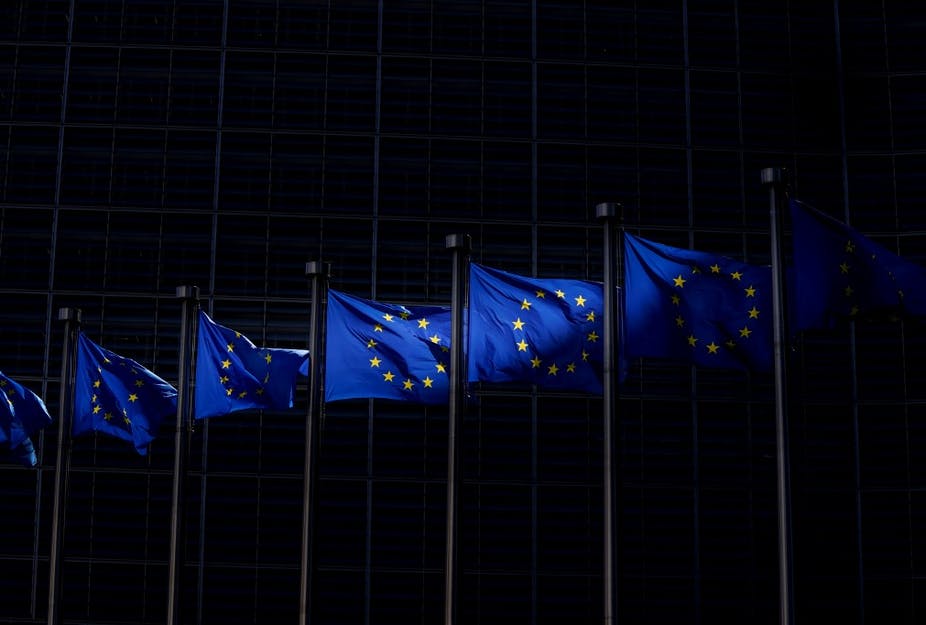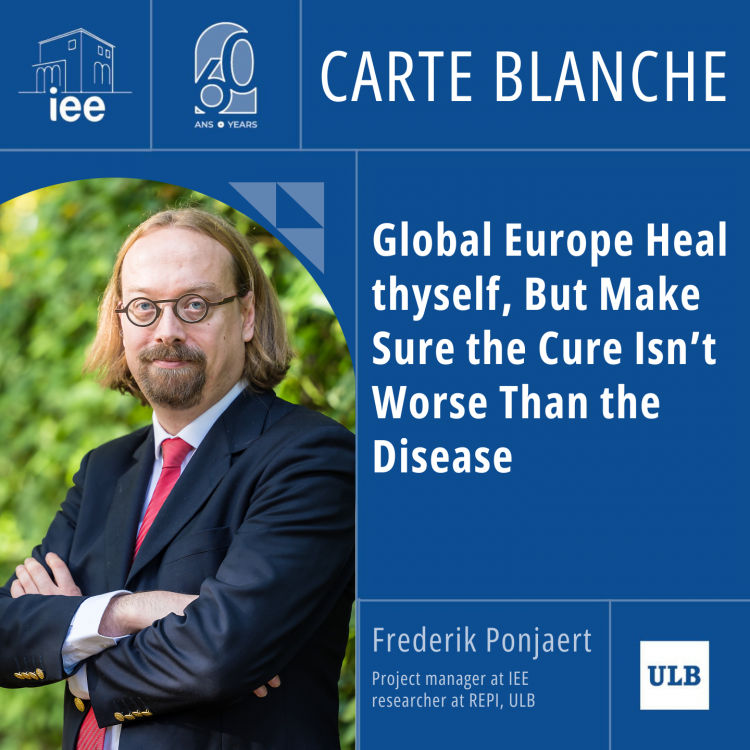Cecilia Rizcallah, Université Libre de Bruxelles; Emmanuelle Bribosia, Université Libre de Bruxelles; Isabelle Rorive, Université Libre de Bruxelles, and Louise Fromont, Université Libre de Bruxelles
At the end of March 2020, just over a month after the emergence of the Covid-19 pandemic in Europe, Jacques Delors, who chaired the European Commission from 1985 to 1995, came out of his reserve to announce that “the lack of solidarity [posed] a mortal danger to the European Union ”.
This type of warning is far from isolated. Thus, on April 2, Mediapart headlined “With Italy, Europe has a date with history”, considering that the European Union was faced with “a question of life and death”. Many media also point out that the EU’s identity is at a turning point in its history in the face of divisions over economic solidarity but also of attacks on its fundamental values.
While with Brexit, one might have thought that the Union had been confronted with its greatest existential crisis, the Covid-19 does indeed seem to have taken over by generating a polycrisis of which the extent is hardly yet measured . While it is undoubtedly too early to assess the EU’s responses, it is instructive to measure them against those it has brought in two previous “crises”, those of sovereign debt and the rule of law.
Read the full article, in French, here
This article is republished from The Conversation under a Creative Commons license. Read the original article.
Photo: Devant le bâtiment de la Commission européenne à Bruxelles, le 28 mai 2020. Kenzo Tribouillard / AFP
Cecilia Rizcallah, Researcher in EU law and Human Rights at FNRS, Université Saint-Louis – Bruxelles et Université Libre de Bruxelles, Université Libre de Bruxelles; Emmanuelle Bribosia, Professor at the Faculté de Droit et de Criminologie of the ULB et Vicepresident of the Institut d’Etudes européennes, Université Libre de Bruxelles; Isabelle Rorive, Professor at the Faculté de Droit et de Criminologie of the ULB and President of the Centre Perelman de philosophie du droit, Université Libre de Bruxelles, and Louise Fromont, Researcher at Centre Perelman de philosophie du droit of the Faculté de droit et de criminologie, Université Libre de Bruxelles. They are also affiliated to the Institut d’études européennes.





Comments
[…] Crisis, the Refugee Crisis, Brexit and the Rule of Law crisis. This situation is termed the ‘Polycrisis of the European Union’. Demonstratively, the Polycrisis has exerted and continues to exert uncertainty on the 27. […]